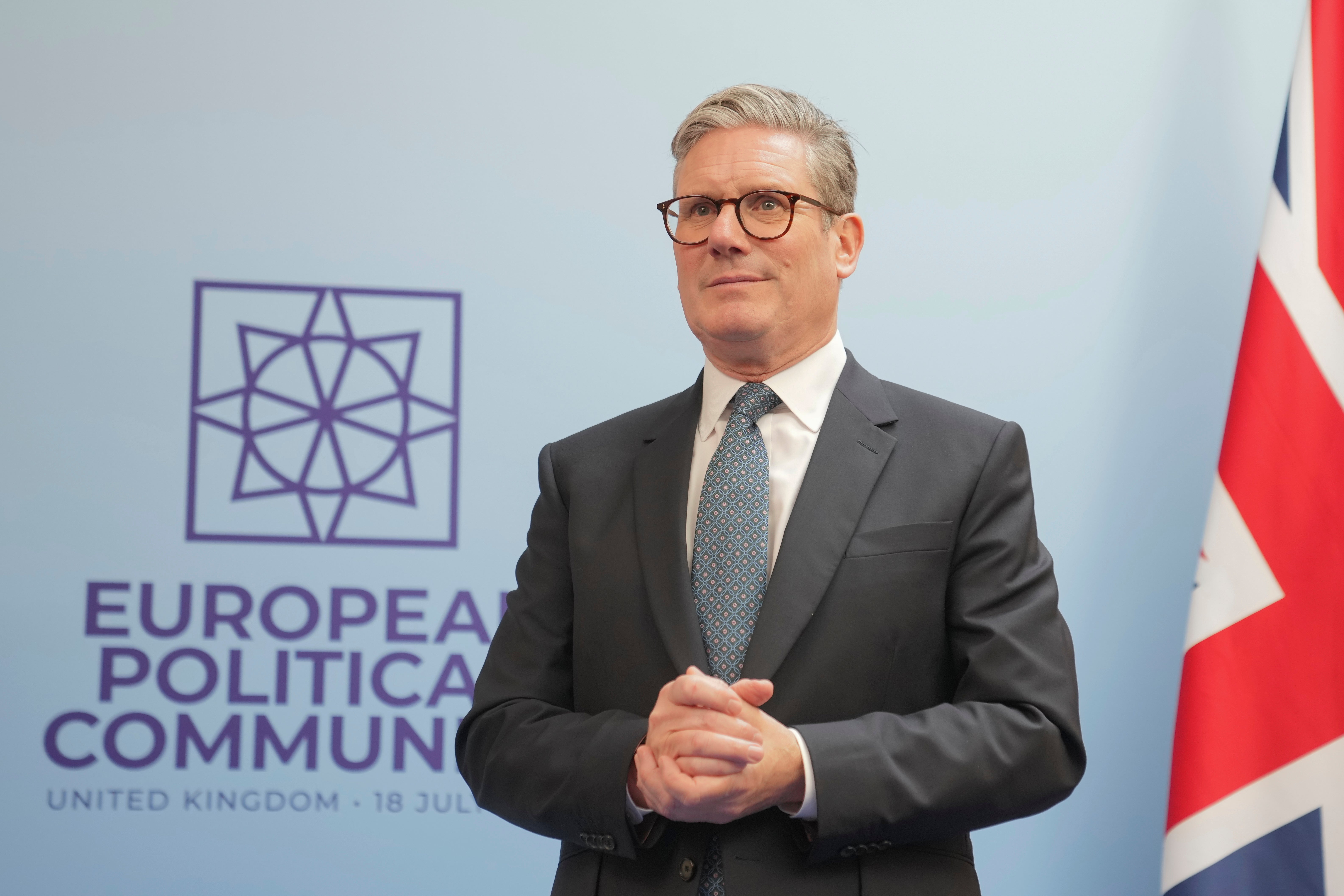Starmer has made a good start of wiping up the toxic residue of Brexit
Editorial: The Labour leader has been clear that the UK will not be rejoining the EU, or the single market or the customs union, in the near future. However, this must not prevent his government from renegotiating aspects of the Brexit deal, or from edging Britain back towards our nearest neighbours

Blenheim Palace, a world heritage site, was a wise choice for the fourth meeting of the European Political Community (EPC), led by Sir Keir Starmer.
Its grand buildings are rich in history. Winston Churchill was born there. It served as a centre for MI5 during the Second World War. It is named after a battle during the war of the Spanish succession, fought in 1713 in Bavaria against the French. If Sir Keir was seeking a redolent “mood backdrop” to complement the convivial mood music he created for his fellow 46 prime ministers, chancellors and presidents, then the warm Cotswold stone provided it.
According to the Blenheim Palace Foundation, this venerable collection of buildings “requires constant attention”. So, too, it might be said, does the UK’s relationship with the European Union and the wider continent, amply represented at this gathering.
For reasons that are too painful to dwell upon, the last few years have marked a nadir in Britain’s association with the bloc. The premierships of Theresa May, Boris Johnson and Liz Truss saw little but conflict, bluff, threats, childish taunts, insults and chaos. The British economy has been permanently damaged, and the 2016 referendum unleashed demons that still torment British society.
But Brexit damaged the EU as well – it was a “lose-lose” scenario. Rishi Sunak, to be fair to him, did his best to begin the process of rebuilding good relations, but only a decisive break from the recent past – and a change of government – could signal a new beginning.
So it has come to pass. Sir Keir settled into the role of leader with remarkable ease, just as he did at the Nato summit. His unpretentious, workmanlike approach, uncomplicated and untroubled by deep fissures within his own party, was an obvious success. The meeting was focused on the most pressing pancontinental challenges – Ukraine, the migrant crisis and energy security – and all of the nations that had gathered were able to make their contributions via relatively informal working groups and relaxed plenary sessions. From Iceland to Armenia and from Portugal to Ukraine, this was a forum for all.
The EPC is not, in truth, any kind of decision-making body, and has no pretensions to such a role. Without the pressure of agreeing joint communiques and trying to find unreachable consensus, these meetings have proved their worth in building personal relationships, trust and goodwill.
For Britain, in particular, these are precious gains. By the time the King arrived to offer his thanks to the attendees, the “reset” Sir Keir had declared he wanted had already been achieved, and the images of him engaging with other leaders – especially France’s Emmanuel Macron, who invented the EPC – provide the proof.
The next few years will not see the UK rejoin the EU, the single market or the customs union – Sir Keir does not believe that this will happen in his lifetime. However, aspects of the Brexit deal can be renegotiated, with the UK edging closer to Europe.
It is not the case that the whole of the 2021 EU-UK trade and cooperation agreement will be relitigated in the imminent review, but that is no reason why valuable improvements cannot be engineered – as was the case with Mr Sunak and the Windsor Framework.
More promisingly, the idea of a UK-EU security agreement has been gaining traction, especially since Russia invaded Ukraine (which was also the cue for the formation of the EPC). With the looming prospect of an isolationist Trump administration returning to power, this project is building more momentum.
Ursula von der Leyen, newly re-elected as president of the European Commission, talks about a “true European defence union”. It would be a dereliction of our national duty to stay outside of such an enterprise. It is, after all, one of the many possibilities that are open to the Starmer administration in its endeavour to wash away some of the toxic residue that Brexit left behind, pending a more comprehensive settlement.



Join our commenting forum
Join thought-provoking conversations, follow other Independent readers and see their replies
Comments